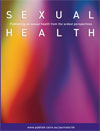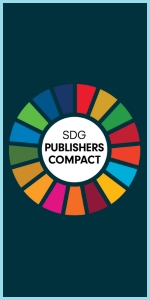This editorial, by the retiring Editors Christopher Fairley and Roy Chan, tells the story of the founding of Sexual Health in 2004 and its journey. They express their gratitude for privilege they have enjoyed as Editors-in-Chief of the journal.

Volume 20 Number 2 2023
This editorial introduces the incoming co-Editors-in-Chief of the journal, and their plans to taking the journal in four directions focused on clinical impact, open science, building capacity, and improving the submission process.
SH23011Interim position statement on doxycycline post-exposure prophylaxis (Doxy-PEP) for the prevention of bacterial sexually transmissible infections in Australia and Aotearoa New Zealand – the Australasian Society for HIV, Viral Hepatitis and Sexual Health Medicine (ASHM)
 , Jason J. Ong
, Jason J. Ong  , Nathan Ryder
, Nathan Ryder  , Catriona Ooi, Arthur Wong
, Catriona Ooi, Arthur Wong  , Penny Kenchington, Massimo Giola, Basil Donovan, Judith A. Dean
, Penny Kenchington, Massimo Giola, Basil Donovan, Judith A. Dean  , Jean-Michel Molina and Nicholas A. Medland
, Jean-Michel Molina and Nicholas A. Medland 
This interim position statement from the Australasian Society for HIV, Viral Hepatitis and Sexual Health Medicine (ASHM) outlines evidence for the effectiveness of doxycycline prophylaxis to prevent bacterial sexually transmitted infections (STI), namely syphilis, chlamydia and gonorrhoea, and outlines potential risks of this prevention strategy. This position statement aims to provide clinicians in Australia with the information needed to conduct evidence-based conversations with patients about this STI prevention strategy.
SH23011 Abstract | SH23011 Full Text | SH23011PDF (492 KB) Open Access Article
SH22114Prevalence of five curable sexually transmitted infections and associated risk factors among tertiary student men who have sex with men in Nairobi, Kenya: a respondent-driven sampling survey†
Young gay, bisexual and other men who have sex with men (YMSM) are disproportionately affected by sexually transmitted infections (STIs). Our study tested and found that more than half of the sampled 248 college and university YMSM in Nairobi, Kenya, had at least one of five curable STIs. There is thus need for concerted efforts to address the high burden of STIs in this population.
SH22114 Abstract | SH22114 Full Text | SH22114PDF (779 KB) Open Access Article
SH22110Self-efficacy mediates the effect of providing HIV self-testing kits on HIV testing frequency among Chinese men who have sex with men: results from a randomised controlled trial

HIV self-testing (HIVST) has the potential to promote HIV tests; however, knowledge about the mechanisms by which providing HIVST kits impacts the uptake of HIV testing is limited. This study was performed to examine how self-efficacy mediated the association between HIVST provision and HIV testing uptake. Our findings indicate HIVST provision could improve HIV testing self-efficacy, and self-efficacy mediated the predicted relationship between supplying HIVST kits and HIV testing frequency. Improving self-efficacy might be an effective way to increase HIV testing among Chinese MSM.
SH22163Sexual mixing patterns in men who have sex with men: network approaches for smart resource allocation
 , Matthew Graham, Katherine Harripersaud, Qiuying Zhu, Guanghua Lan, Zhiyong Shen and Shuai Tang
, Matthew Graham, Katherine Harripersaud, Qiuying Zhu, Guanghua Lan, Zhiyong Shen and Shuai Tang
‘Who has sex with whom?’ is the primary question that dictates how HIV and other sexually transmitted infections spread in populations. We used such sexual network data from a sample of Chinese men who have sex with men (to further answer, ‘who transmits to whom?’ Our findings – that most HIV transmission originates in men who have sex with men shortly after sexual debut – can guide the targeting of resources to the highest-need subgroups to arrest HIV spread.
SH22163 Abstract | SH22163 Full Text | SH22163PDF (1.3 MB) Open Access Article
SH22181Pornography consumption and sexual health among emerging adults from Malaysia: an observational study
The prevalence of pornography consumption remains high in Malaysia despite governmental efforts in banning sexually explicit content. The current research revealed that the attitudes and behaviours related to pornography consumption among Malaysian emerging adults match trends that have been observed globally, and that pornography use can be particularly beneficial or detrimental for women. Findings highlight the need for comprehensive sex education to be provided to adolescents and emerging adults in Malaysia to promote sexual health literacy, especially among women.
SH22181 Abstract | SH22181 Full Text | SH22181PDF (2.4 MB) | SH22181Supplementary Material (317 KB) Open Access Article
SH22139Would men who have sex with men support less frequent screening for asymptomatic chlamydia and gonorrhoea to improve antibiotic stewardship? A qualitative study
 , Henrietta Williams, Jacqueline Coombe
, Henrietta Williams, Jacqueline Coombe  , Cassandra Caddy, Christopher Kincaid Fairley
, Cassandra Caddy, Christopher Kincaid Fairley  and Jane Simone Hocking
and Jane Simone Hocking 
Current sexually transmitted infection (STI) guidelines recommend that men who have sex with men (MSM) taking pre-exposure prophylaxis (PrEP) should be tested every 3 months for chlamydia and gonorrhoea regardless of symptoms. However, these guidelines have not led to a noticeable reduction of gonorrhoea and chlamydia rates and there is increasing concern about antibiotic consumption among this group and its impact on antimicrobial resistance. We interviewed MSM to explore their attitudes to 3-monthly screening and how they would feel about screening less frequently.
SH22139 Abstract | SH22139 Full Text | SH22139PDF (698 KB) | SH22139Supplementary Material (835 KB) Open Access Article
SH22125A qualitative evaluation of a Nudgeathon event for the co-design of sexual health campaign images targeting overseas-born men who have sex with men
 , Ivo Vlaev, Daniel Read, Kelly Ann Schmidtke, Eric P. F. Chow
, Ivo Vlaev, Daniel Read, Kelly Ann Schmidtke, Eric P. F. Chow  , David Lee, James Tapa and Jason J. Ong
, David Lee, James Tapa and Jason J. Ong 
We evaluated a 4-h online Nudgeathon aimed to co-design a digital advertisement campaign for HIV pre-exposure prophylaxis (PrEP) among overseas-born men who have sex with men. All interviewees were satisfied with the end-product they co-designed with their group, which proved to be as productive in co-designing solutions as past Nudgeathons conducted in person, lasting 1–2 days. Online co-design workshops can be a fast and efficient option for developing potential solutions to sensitive issues, such as PrEP.
SH22125 Abstract | SH22125 Full Text | SH22125PDF (452 KB) | SH22125Supplementary Material (771 KB) Open Access Article
Young people aged 15–29 years account for more than 70% of sexually transmissible infections (STIs) reported in Australia. This study surveyed self-reported STI testing, sexual behaviours, pornography use, and sexual health knowledge in samples of young Victorians over the period of 2015–21, captured through an online survey. Results provide current trends in sexual health behaviours and knowledge to help inform effective public health interventions for young people.
SH22113Efficacy and acceptability of ‘nudges’ aimed at promoting pre-exposure prophylaxis (PrEP) use: a survey of overseas born men who have sex with men
 , Ivo Vlaev, Kelly Ann Schmidtke, Eric P. F. Chow
, Ivo Vlaev, Kelly Ann Schmidtke, Eric P. F. Chow  , David Lee, Daniel Read and Jason J. Ong
, David Lee, Daniel Read and Jason J. Ong 
Nudge theory argues that a large portion of human behaviour is the result of how choices are presented to us, as opposed rational considerations such as which choices are in our best interests. ‘Nudges’ are interventions that allow policy makers to cheaply alter behaviour without significantly changing economic incentives. We investigate the use of these techniques as tools to increase awareness of pre-exposure prophylaxis, an effective HIV prevention strategy, among overseas-born men who have sex with men in Australia.
SH22113 Abstract | SH22113 Full Text | SH22113PDF (209 KB) | SH22113Corrigendum (500 KB) | SH22113Supplementary Material (768 KB) Open Access Article
Men who have sex with men (MSM) can choose between either daily or event-based dosing (EBD) for HIV pre-exposure prophylaxis. In our clinic-based study of 418 individuals on PrEP, EBD-PrEP users had a lower number of sexual partners and tested for sexually transmitted infections (STI) less frequently than daily PrEP users, but were diagnosed with a similar number of STIs. More research is needed to understand the optimal frequency for STI testing in MSM using EBD-PrEP, and we need to increase opportunities for STI testing for MSM using EBD-PrEP.
SH22113_COCorrigendum to: Efficacy and acceptability of ‘nudges’ aimed at promoting pre-exposure prophylaxis (PrEP) use: a survey of overseas born men who have sex with men
SH22113_CO Abstract | SH22113_COCorrigendum (500 KB) Open Access Article



